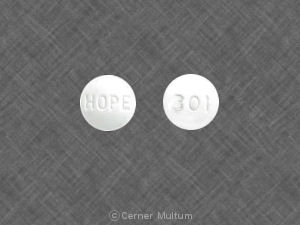Scopolamine Interactions
There are 349 drugs known to interact with scopolamine, along with 17 disease interactions, and 3 alcohol/food interactions. Of the total drug interactions, 10 are major, 322 are moderate, and 17 are minor.
- View all 349 medications that may interact with scopolamine
- View scopolamine alcohol/food interactions (3)
- View scopolamine disease interactions (17)
Most frequently checked interactions
View interaction reports for scopolamine and the medicines listed below.
- Adderall (amphetamine / dextroamphetamine)
- Allegra (fexofenadine)
- Ativan (lorazepam)
- Benadryl (diphenhydramine)
- Claritin (loratadine)
- Colace (docusate)
- Cymbalta (duloxetine)
- Flonase (fluticasone nasal)
- Lexapro (escitalopram)
- Lyrica (pregabalin)
- Metoprolol Succinate ER (metoprolol)
- MiraLAX (polyethylene glycol 3350)
- Mucinex (guaifenesin)
- Norco (acetaminophen / hydrocodone)
- Nurtec ODT (rimegepant)
- Paracetamol (acetaminophen)
- Phenergan (promethazine)
- Protonix (pantoprazole)
- Reglan (metoclopramide)
- Singulair (montelukast)
- Synthroid (levothyroxine)
- Tylenol (acetaminophen)
- Vitamin B12 (cyanocobalamin)
- Vitamin C (ascorbic acid)
- Vitamin D3 (cholecalciferol)
- Wellbutrin XL (bupropion)
- Xanax (alprazolam)
- Zofran (ondansetron)
- Zoloft (sertraline)
- Zyrtec (cetirizine)
Scopolamine alcohol/food interactions
There are 3 alcohol/food interactions with scopolamine.
Scopolamine disease interactions
There are 17 disease interactions with scopolamine which include:
- autonomic neuropathy
- GI obstruction
- glaucoma
- obstructive uropathy
- reactive airway diseases
- myasthenia gravis
- infectious diarrhea
- cardiac disease
- tachycardia
- coronary artery disease
- gastric ulcer
- gastroesophageal reflux
- ulcerative colitis
- hypertension
- hyperthyroidism
- diarrhea
- fever
More about scopolamine
- scopolamine consumer information
- Compare alternatives
- Pricing & coupons
- Reviews (210)
- Latest FDA alerts (1)
- Side effects
- Dosage information
- During pregnancy
- Drug class: anticholinergic antiemetics
- Breastfeeding
- En español
Related treatment guides
Drug Interaction Classification
| Highly clinically significant. Avoid combinations; the risk of the interaction outweighs the benefit. | |
| Moderately clinically significant. Usually avoid combinations; use it only under special circumstances. | |
| Minimally clinically significant. Minimize risk; assess risk and consider an alternative drug, take steps to circumvent the interaction risk and/or institute a monitoring plan. | |
| No interaction information available. |
See also:
Benadryl
Benadryl is an antihistamine and is used to treat sneezing, runny nose, itching and other ...
Phenergan
Phenergan (promethazine) is used to treat allergy symptoms and prevent motion sickness. Includes ...
Botox
Botox is used for cosmetic purposes and to treat overactive bladder symptoms, urinary incontinence ...
Antivert
Antivert (meclizine) is used to treat or prevent nausea, vomiting, and dizziness caused by motion ...
Banophen
Banophen is used for allergic reactions, allergic rhinitis, cold symptoms, cough, extrapyramidal ...
Benadryl Allergy
Benadryl Allergy is used for allergic reactions, allergic rhinitis, allergies, cold symptoms ...
Ginger
Ginger is used for herbal supplementation, motion sickness, nausea/vomiting
Dimenhydrinate
Dimenhydrinate is used for insomnia, meniere's disease, motion sickness, nausea/vomiting
Promethazine
Promethazine is a phenothiazine and antihistamine used to treat allergies, motion sickness, nausea ...
Further information
Always consult your healthcare provider to ensure the information displayed on this page applies to your personal circumstances.


